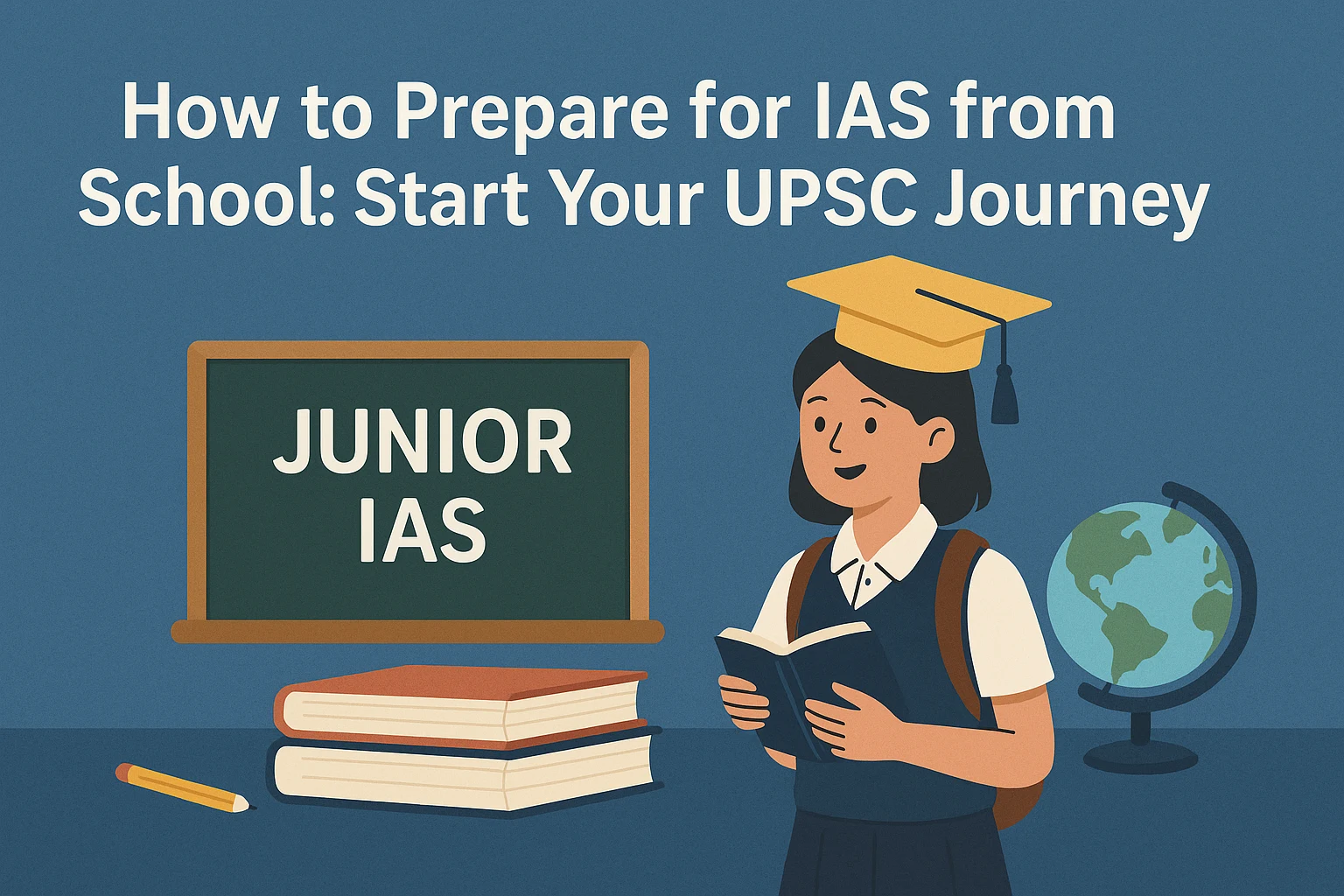How to Prepare for IAS Exam from Childhood: School to UPSC




The dream of becoming an IAS officer is not something that needs to wait until college. Many successful IAS officers started preparing mentally and academically from their school days.
If you're wondering how to prepare for IAS from childhood or how to prepare for the UPSC exam from school, this blog will guide you step-by-step.
Starting IAS preparation from childhood lays a solid foundation, fosters discipline, and instills awareness of national and global issues. School students have the time, flexibility, and curiosity to develop habits that are essential for the UPSC Civil Services Examination.
Start reading NCERT textbooks from Classes 6 to 12, especially in History, Geography, Polity, Economics, and Science. These books form the base for UPSC preparation and are frequently recommended by toppers and coaching institutes.
Subjects like Social Science and English directly align with the UPSC syllabus. You can focus on understanding concepts rather than just memorizing them.
From high school itself, make it a habit to read newspapers like The Hindu or The Indian Express. Focus on editorials and current affairs to improve comprehension and awareness.
Read biographies of leaders, general knowledge books, and magazines like Yojana or Kurukshetra. These will help broaden your thinking and vocabulary.
Encourage your child (or yourself) to ask “why” and “how” behind everything. This develops a mindset of analysis, which is key for UPSC preparation.
Start writing short essays, summaries, or diary entries. This builds the foundation for UPSC Mains answer-writing skills.
Create a simple study timetable that balances school, hobbies, and UPSC-aligned reading. Consistency matters more than long hours.
Spend weekends revising NCERT topics or reading extra material related to current events or history.
Join debates, quizzes, or essay contests. These enhance public speaking, general knowledge, and confidence.
Being active in school clubs, student councils, or social work helps build soft skills like communication and leadership, traits that are important for civil servants.
By high school (Class 9–12), start becoming familiar with the UPSC syllabus. Glance through past years’ question papers to understand what the exam demands.
In Classes 11–12, explore subjects you might choose as your optional in the UPSC Mains. Understanding your strengths early helps in subject selection later.
Watch interviews and read blogs of IAS toppers. Their journey will give you practical tips and motivation to keep going.
Small wins build momentum. Set monthly reading or writing goals and celebrate when you achieve them.
Stage | Focus Areas |
| Middle School | Build basics, read NCERTs, develop curiosity |
| High School | Read newspapers, write essays, join debates/quizzes, explore UPSC topics |
| Class 11–12 | Deepen subject knowledge, align with UPSC syllabus, explore optional subjects |
| Ongoing | Stay consistent, read widely, participate in activities, follow toppers |
Starting IAS preparation from school isn’t about pressure; it’s about learning the right way, staying curious, and growing with purpose. If your child dreams of becoming a civil servant, now is the perfect time to take the first step.
Interval Learning offers the Junior IAS course, a beginner-friendly program made for students from Classes 6 to 10. It helps children build a strong base in thinking, understanding, and problem-solving through fun and engaging lessons. This course supports their interest in civil services and sets them on the right track early on.
Let your child explore their IAS dream with confidence, Start with the Junior IAS course today!
As early as Class 6, by reading NCERTs, following news, and participating in enriching activities.
No. You’re not preparing for the exam directly, but developing habits and knowledge that help later.
Focus on reading newspapers, writing essays, building conceptual clarity, and understanding the UPSC syllabus.
Start with NCERTs, newspapers, and participation in academic competitions. Slowly, align with UPSC topics.